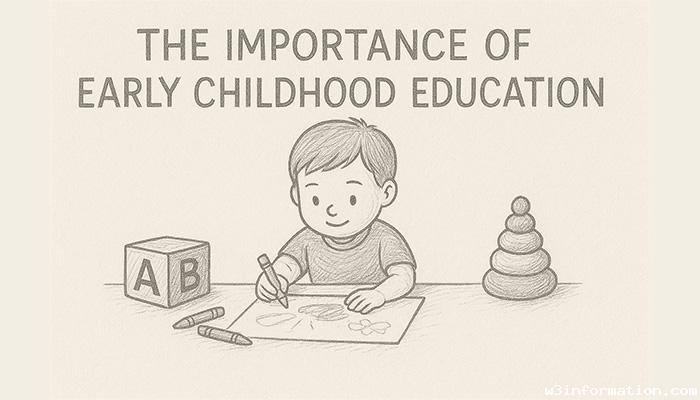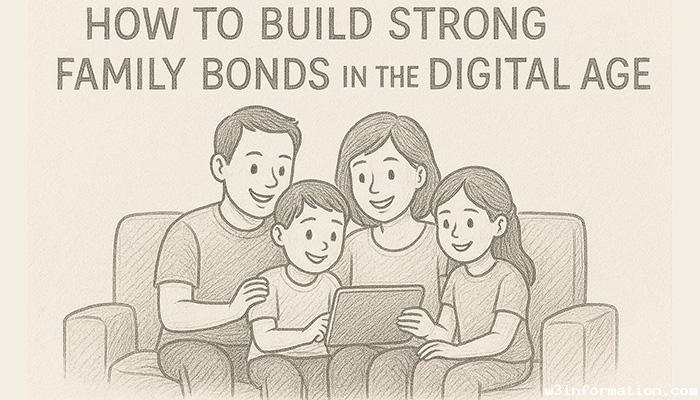The Importance of Early Childhood Education
Early childhood education (ECE) serves as a fundamental element in determining a child's developmental trajectory. During their early years children encounter experiences which profoundly influence their emotional growth as well as their cognitive abilities and social skills. The initial years of life represent a crucial time during which brain development establishes essential building blocks for future learning capabilities and behavioral patterns while shaping overall child development. Recognizing the value of high-quality early education enables society to make informed investment decisions that shape children’s futures. The blog will discuss why early childhood education must be recognized as a central focus for families, communities and government bodies.
Brain Development in the Early Years
Brain development during the early years of a child’s life proves essential for their growth. Research indicates that children's brains expand quickly in their early years by developing over one million new neural connections each second. Early childhood education significantly influences brain development while promoting essential skills like language acquisition and critical thinking abilities.
a. Building Cognitive Skills
Quality early childhood education programs help children develop superior cognitive abilities. Children who experience diverse learning situations like language-rich environments combined with age-appropriate challenges and problem-solving activities develop essential skills that support their future academic achievements.
b. Language Development
Early childhood education mainly helps children develop better language abilities. Early interactions with language-rich settings enable children to build strong vocabulary and reading and writing abilities that serve as crucial building blocks for their academic success. Early education programs use interactive storytelling along with songs and conversations to support language development starting at a young age.

Emotional and Social Development
Early childhood education develops children's essential social and emotional skills which enable them to interact effectively with others and manage their emotions. Foundation skills for academic achievement and subsequent life success emerge from early educational experiences.
a. Socialization and Peer Interaction
Through peer interactions in ECE programs children learn fundamental social skills like sharing, teamwork, conflict resolution, and empathy. Building positive relationships and understanding social navigation requires essential interactions both inside and outside classroom settings.
b. Emotional Regulation
Through early childhood education children develop emotional regulation skills which teach them to recognize and control their emotions. Children learn appropriate expression of their emotions through these programs which helps them handle frustration and disappointment alongside other emotional challenges in a healthy manner.
Preparation for Future Academic Success
Early education prepares children to handle elementary school requirements and future educational challenges. Early childhood education creates the groundwork for academic achievement by equipping children with essential skills and knowledge required for formal education success.
a. Fostering a Love of Learning
The approach in early education programs combines play-based learning with hands-on activities to foster children’s curiosity. The teaching method enables students to build a passion for education that becomes essential for their academic achievements throughout their school years. Children who develop an enthusiasm for learning at an early age tend to achieve better academic results and pursue higher education as adults.
b. Building Early Literacy and Numeracy Skills
A fundamental objective of early childhood education includes exposing children to essential literacy and numeracy principles. Young children acquire essential reading, writing, and problem-solving skills through storytelling and activities like letter recognition and number games combined with basic math exercises.
Long-Term Benefits for Society
Early childhood education investments provide lasting advantages for both individual students and society overall. Research demonstrates that students who participate in high-quality early education programs achieve better academic results and go on to attend college while making positive contributions to society.
a. Reduced Achievement Gaps
Children from financially disadvantaged backgrounds benefit from high-quality early education programs which help reduce academic disparities. Equal access to early learning programs enables children from all backgrounds to achieve academic success throughout their lives.
b. Economic Impact
Early childhood education investment produces substantial economic benefits. Research shows that each dollar invested in early childhood education produces up to $7 of economic benefits through increased lifetime earnings, crime reduction and decreased healthcare expenses. These returns support individual families and benefit society because they lead to an enhanced workforce quality.
Promoting Parental Involvement and Support
The value of early childhood education programs extends to parents because these programs deliver resources alongside guidance and create involvement opportunities for parents in their child's development. Educator-parent partnerships establish essential learning environments that extend from school facilities through to the home setting.
a. Parent-Teacher Collaboration
A number of early childhood education programs promote transparent communication between parents and teachers. Through this partnership parents receive continuous updates about their children's academic advancements and collaborate with teachers to solve any educational issues that arise. A child’s educational progress improves when parents participate actively in their learning process.
b. Parent Education and Support
Early childhood education programs deliver resources and workshops which support parents while they also develop children's abilities. These programs provide guidance to help parents support their child’s learning at home and address behavioral and emotional needs. Early childhood education programs strengthen family relationships and improve home environments by teaching parents essential knowledge and skills.
Access to Early Childhood Education for All
Early childhood education programs offer significant benefits but quality programs remain inaccessible to families living in underserved communities. Universal access to early childhood education for children from all socioeconomic backgrounds is essential for giving each child an equal chance to succeed.
a. Government Initiatives
Worldwide governments show greater awareness about early childhood education benefits and direct investments toward universal access policies. Public funding for early childhood programs is increasing throughout numerous nations which together with new initiatives aims to make high-quality early education accessible for all children.
b. Community-Based Programs
Head Start and similar community-based programs in the U.S. deliver early childhood education plus additional services to support children from low-income families. Education programs combine learning opportunities with health and nutrition services to meet the comprehensive needs of disadvantaged children and their families.
Conclusion: The Power of Early Childhood Education
Early childhood education plays such a crucial role that its significance exceeds all possible descriptions. Early childhood education establishes the essential groundwork for children's cognitive abilities and emotional and social skills which leads them towards academic achievement and life success. Investment in early learning enhances individual children's lives while producing societal benefits through increased prosperity and equity. We need to provide every child with access to essential early education opportunities as we acknowledge its fundamental importance. Our society's future relies heavily on this approach.
 Top 10 Comfort Foods to Try This Winter
Top 10 Comfort Foods to Try This Winter
 Top 10 Christmas Destinations Around the World
Top 10 Christmas Destinations Around the World
 Navigating Adolescence: Tips for Parents and Teens
Navigating Adolescence: Tips for Parents and Teens
 How to Start a DIY Craft Project on a Budget
How to Start a DIY Craft Project on a Budget
 How to Build Strong Family Bonds in the Digital Age
How to Build Strong Family Bonds in the Digital Age